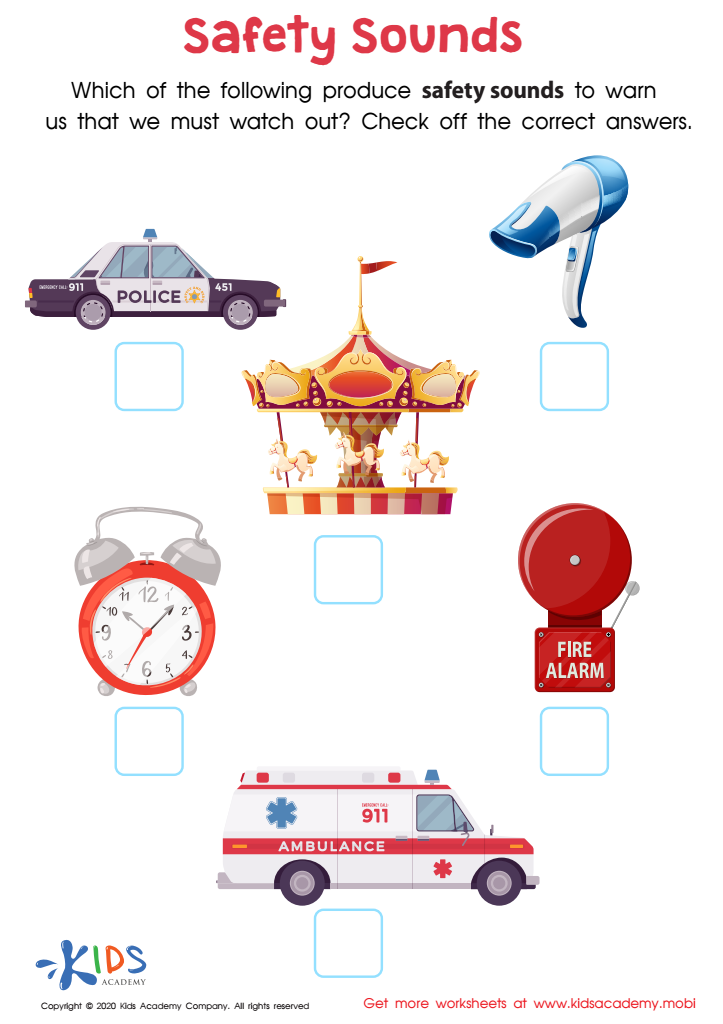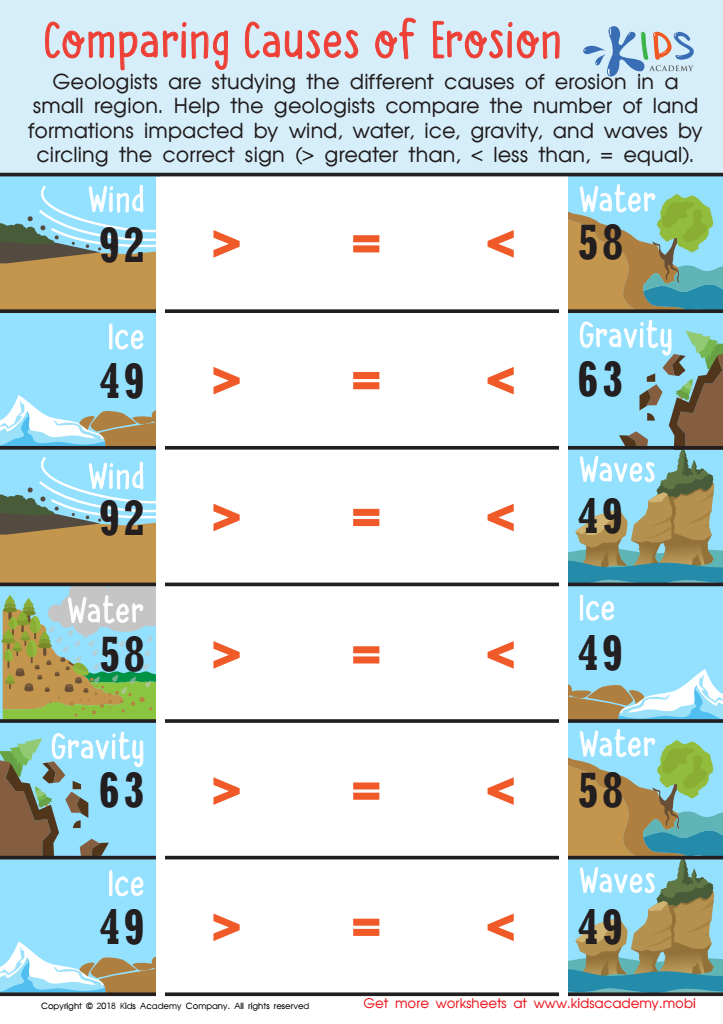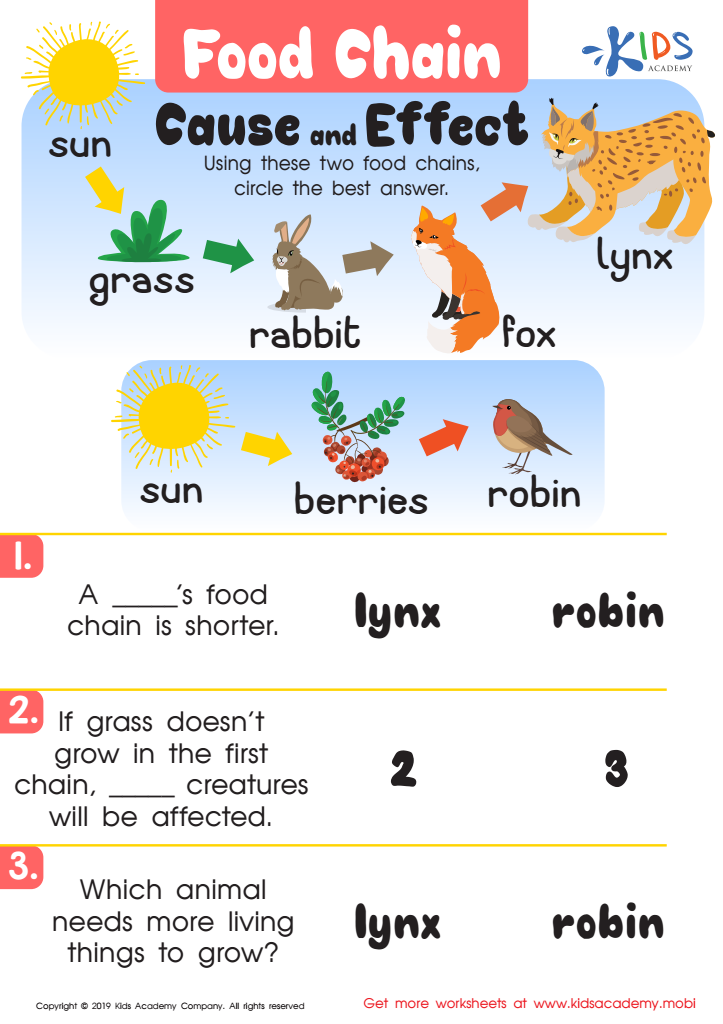Enhancing critical thinking Normal Science Worksheets
3 filtered results
-
From - To
Enhance your students' critical thinking skills with our specialized Normal Science Worksheets! Designed for early learners, these engaging worksheets challenge kids to analyze, interpret, and evaluate information through fun, interactive activities. Each worksheet focuses on key scientific concepts while promoting essential problem-solving abilities, helping young minds build a solid foundation for future learning. Educators will appreciate the variety of topics covered, making it easy to integrate these resources into any lesson plan. Encourage collaboration and discussion amongst students as they work through exercises that cultivate curiosity and innovation in science. Explore our collection today and empower the next generation of critical thinkers!


Safety Sounds Worksheet


Comparing Causes of Erosion Worksheet


Food Chain Cause Worksheet
Enhancing critical thinking in science education is vital for parents and teachers to recognize, as it forms the foundation of inquiry-based learning. In today’s rapidly evolving world, students are bombarded with vast amounts of information. Critical thinking equips them with the skills to analyze, evaluate, and synthesize this information effectively. By fostering these skills, educators empower students to question assumptions, consider multiple perspectives, and draw informed conclusions.
Moreover, a strong emphasis on critical thinking in science promotes curiosity and a passion for learning. When students learn to think critically, they become active participants in their learning journey, rather than passive recipients of information. This active engagement supports deeper understanding and retention of scientific concepts.
Parents and teachers also recognize that critical thinking is not just essential for academic success, but also crucial for everyday decision-making and problem-solving. Children who think critically are better prepared to navigate real-world challenges, from personal choices to environmental issues.
Ultimately, enhancing critical thinking in science cultivates informed and responsible citizens who can contribute positively to society. For a better future, we must prioritize teaching these essential skills at an early age, paving the way for independent thinkers who can tackle the complexities of our world.
 Assign to My Students
Assign to My Students



















